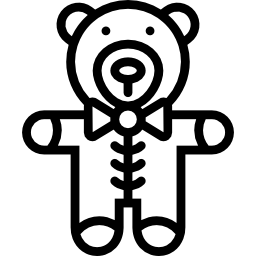Time to PlayNI: Process, Heal and Achieve
I currently offer one to one, non-directive play therapy sessions for children and young people aged between 4-12 years old. Meaning, that if you choose for your child to attend sessions, they will be in control of what they play with, how they play, either being independent or with me included. (Appropriate boundaries will be implemented to ensure the safety or the child, myself and the playroom).
I offer a free consultation to discuss with the parent/s or guardian to confirm whether play therapy is the best method of support for their child at that time.
A one to one 40 minute session: £50
It is recommended for a child to attend at least 12 sessions. Payment plans are available: weekly- £50, 4 weekly- £200, discounted full (12 sessions for the price of 11): £550.
Payment can be either PayPal, bank transfer or cash.
Please contact me via my contact page to arrange a free consultation, either via telephone or face to face.
Get in touchMy Tool-Kit within the Play Therapy room
In each session the following objects will be offered for your child to use to explore their feelings or experiences:

Creative Visualisation

Therapeutic Story Telling

Drama/ Role Play

Puppets and Masks

Sand Tray/ Water Tray

Art / Drawing

Music

Dance and Movement
“Toys are Children’s Words and Play is their Language” (Garry L Landreth)
Play Therapy is known as a ‘bottom-up’ approach as it stimulates a child’s conscious and sub-conscious mind. The toys, also known as ‘medium’s’, become symbols for the child to use in their play to unfold and process their deepest feelings or unresolved experiences. During the play, the child’s brain can reform new healthy neuropathways that can last for a lifetime. The child’s play provides the child with an opportunity that they can explore any big emotions or difficult experiences by bringing this into their play.
For some children, this may be a conscious choice in their play, for example, using a similar theme in their play as their reason for attending play therapy, i.e., divorce, bullying or trauma. Whereas, for some children may not be consciously aware that they are ‘playing out’ their feelings, as this could be from a sub-conscious place. Nonetheless, whether the play is within the conscious or sub-conscious mind, the child’s brain is breaking down their feelings or past experiences and processing them so that the child can heal and achieve their goals in life.
Play Therapy can support the child’s brain to rewire itself, so that old neuropathways that are located in the brain start to breakdown and to eventually disappear. In their replacement, the brain recreates new healthy neuropathways that support the child to express themselves safely as well as to understand themselves on a deeper level.
Research has shown that Play Therapy gives a child the opportunity to develop their communication and social skills as well as strengthening their self-esteem and confidence. Consequently, the skills that are learnt in play therapy will stay with the child through childhood, adolescent years and into adulthood.
My role in the play therapy room is to provide support and to guide your child during their healing process. The therapist doesn’t “fix” your child, I guide your child to “fix” themselves!
There are various reasons that a child would benefit from Play Therapy, some are:
- Abuse – Physical, Emotional or Sexual
- ADHD, Autism, Hyperactivity
- Anxiety
- Anger
- Bereavement and Grief
- Bullying / Cyber Bullying
- Divorce or Family Separation
- Domestic Abuse
- Friendship Issues
- Nightmares
- Self Esteem or Confidence Issues
- Toileting Issues
Behaviours that Play Therapy can support
- Anger/aggression
- Anxiety
- Attachment issues, i.e. struggles to leave parent
- Communicational issues
- Eating disorders
- Hyperactivity
- Lack of concentration
- Lack of self-esteem and confidence
- Withdrawn behaviour or personality
The Statistics
In 2021 PTUK found that across 157,747 Play Therapy sessions, children chose to talk for 1/12 out of their full time in therapy. 11/12 times they chose to play.
77% to 84% of children receiving Play therapy delivered PTUK/PTI standards show a positive change.”
(The amount of change varies according to gender, age, condition, severity of the issue and country. APAC 2017)
12.6% of children and young people in Northern Ireland experience common mood disorders such as anxiety and depression – around 25% higher than in other UK nations (NI Youth Wellbeing Survey).
One in eight children and young people in Northern Ireland experienced emotional difficulties, one in ten had conduct problems and one in seven problems with hyperactivity. (NI Youth Wellbeing Survey).
“Play is a child’s natural medium for self-expression” – Virginia Axline
Play Therapy gives a child or young person the opportunity to express their feelings or problems as this method of play has a therapeutic objective. Play can provide various benefits to a child or young person which include:
- Fun
- Freedom
- Social interaction/ socialisation
- Physical activity
- Environmental cognitive stimulation
- Creativity and problem solving
- Self-discovery
(Source: Brown, F. (2014) Play and Playwork: 101 Stories of Children Playing.)
Advice to Parents & Guardians
When a child experiences trauma, a difficult experience or if they are trying to understand themselves and their feelings, it can be challenging for them to express their feelings and emotions. Consequently, the child may struggle to express their need, and therefore, they are trying to communicate their need through their behaviours, either consciously or subconsciously.
Play Therapy enables a child to use play to communicate their feelings and emotions, without having the pressure of trying to find the words to explain how they feel, as a child’s most natural form of communication is play.
It can be difficult to decide whether you want your child to attend therapy now or to wait and see how things unfold. Please always remember that when it comes to your child, YOU are the expert.
This is why I offer a free consultation for parents or professionals, either face to face or via telephone to help ease you of any pressures or worries that you may have.